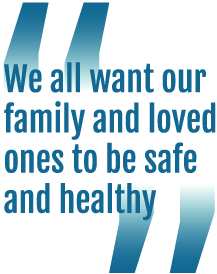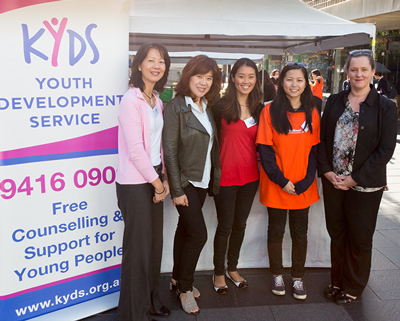The Chatswood Mental Health Expo – A Volunteer’s Perspective
In April, WayAhead, in partnership with Willoughby City Council and Australian Chinese Psychological Association, held a Mental Health Expo in Chatswood that targeted the Chinese community for the first time. I was looking forward to volunteering on the day because even though I am Chinese-Australian, to participate in a conversation about mental health with the Chinese community was completely foreign to me.

Breaking into the Chinese community was difficult at first, not only because of the cultural and language barriers, but also largely due to the stigma and their preconceived ideas surrounding mental health. Many members of the Chinese community hold a very negative view of mental health, where it is embarrassing or even shameful to experience. Often, there is a belief that very serious mental health disorders are the only mental health concern and as a result of this, mental health is rarely addressed or talked about.

Except we were right at in the heart of Chatswood Mall, handing out specially-translated flyers in Chinese so that we could communicate directly to the Chinese community.
I was very surprised with what I learnt from this experience and I would like to share this with you.
In my experience, Asian communities – especially Chinese speakers – are generally distrustful of strangers who are foreign to them. Many were intrigued by the Expo, enticed by the free food, even dazzled by the tai-chi performances and stilt walkers, but they still needed more encouragement to approach our stall and start a conversation about mental health. They were more reserved than your usual shoppers. Luckily, our team at WayAhead had many bilingual volunteers and by speaking in Chinese to passers-by, I found that they were much more at ease and even became curious about what we were doing.
Through our conversations, I found that most of the Chinese community were quite disconnected with their mental health. Most seemed to equate mental health with feelings of sadness or depression. One woman told me that she was 70 years old and very happy – therefore she didn’t need our services. But before she left, I quickly asked if she had any children or grandchildren who may be under a lot of pressure from their work or studies. Her tone drastically changed when we started to chat about her grandchildren who I learnt were under so much stress because they were studying for their HSC this year. As I handed her some information booklets in Chinese, I told her that at WayAhead, we want to raise awareness and start conversations about mental health with the Chinese community because we all want our family and loved ones to be safe and healthy.

Cindee with the Kyds stall at the Mental Health Expo
My biggest find was that while many Chinese people from the older generation did not understand mental health, they did have family members who may have been diagnosed with anxiety or depression, or had seen that their family were under a lot of stress and wanted to learn more about it to help themselves help their family. This became a recurring conversation; I would ask about their family members and they would suddenly realise that they would benefit from this information – maybe not for themselves but for their family.
I was pleasantly surprised because I had expected the older generation to almost completely reject the idea of mental health issues (although this was also a common response). From personal experience, it is common that mental health issues within family circles tend to stay within family circles – almost a taboo to speak about to other people, as though it was something to be ashamed about. One of the reasons we held this Mental Health Expo was to normalise the conversation of poor mental health and create an open space where people from the Chinese community could engage and ask questions.
I am very pleased that WayAhead organised this event in Chatswood and was able to open up dialogue within the Chinese community to talk about such taboos.
By Cindee Duong
Newsletter
Stay up to date
Sign up to our Mind Reader newsletter for monthly mental health news, information and updates.